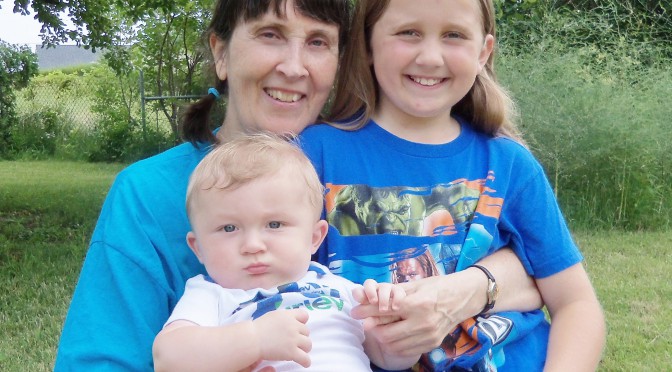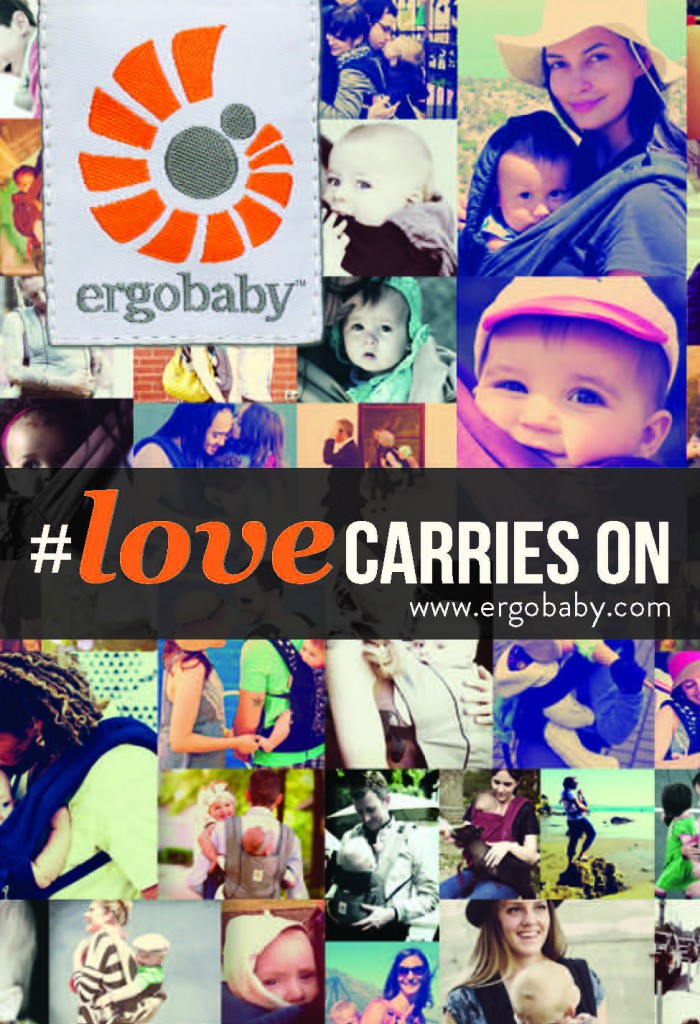The seeds for my organization, Parenting for a Caring World (PCW), were sown back in 1981 when I learned from La Leche League (LLL) International about the parenting approach that many now refer to as Attachment Parenting, though there was no name for it then.
Maureen McCarthy lives in Wayne, Indiana, USA, and has 1 grown child and 2 grandchildren. She is the Founder and Director of Parenting for a Caring World. It was her personal experience in Attachment Parenting that inspired Maureen to dedicate her life to infant advocacy, parent support and promoting peaceful conflict resolution and harmony at the societal level.
Maureen earned a Master of Arts in Parenting Education, Holistic Human Development and Counseling. Her professional experience is in parent education, counseling and support. Locally she also facilitates breastfeeding support groups, teaches infant massage and baby sign language classes, and sells slings to promote babywearing.
Mainstream American culture was telling me that my baby needed to cry to have strong lungs and to learn to become “independent.” But my doctor told me that a baby’s lungs did not grow stronger through crying, and LLL explained that it was through meeting my son’s dependency needs that he would grow into a truly independent adult—the kind of independence that is healthy and desirable: when our growing children and our adult children feel confident and capable and know when to turn to others for assistance, support or comfort and when to proceed on their own.
I learned to listen to my baby rather than to unasked-for advice, and I learned to follow my heart, responding promptly when he cried or otherwise communicated his feelings and needs.
I myself was not raised by warm and responsive parents, so it was often a struggle to be the kind of mother I wanted to be. When I didn’t know what to do in a specific situation—especially a stressful one—I reflexively followed the maxim, “Go with what you know,” which often was not a good thing.
I read books about positive discipline, but trying to fully understand and implement the concepts was like learning a foreign language, and I got discouraged. Though I often failed to live up to my high standards for mothering, and made many missteps, my son has continued to be a wonderful person and is a loving and responsive father to his 2 children.
Years later, I learned of Attachment Parenting International (API), founded by two LLL Leaders who wanted to continue promoting LLL’s philosophy of loving responsiveness and additionally address a broader spectrum of parenting issues.
I founded Parenting for a Caring World to support the efforts of these two wonderful organizations and to complement what they offer by focusing on a few special issues and research findings.
Read more about the foundation for Parenting for a Caring World in Maureen’s research paper on the goals, methods and results from the 2 major child-rearing philosophies in Western society.
For example, I share research findings about the harmfulness of behavioristic independence-training techniques such as leaving babies alone to “cry it out,” I use music and specific “imagination experiences” to help people feel what babies feel when left alone and I present evidence from neuroscience, anthropology and other fields that supports a warm, respectful, responsive and relationship-oriented style of parenting.
Attachment Parenting is based on API’s Eight Principles of Parenting, which are rooted solidly in more than 60 years of research. The goal is to create secure parent-child attachment, and the parenting choices center on warmth, trust, empathy, compassion, affection and joy. API welcomes all like-minded individuals and organizations to join the Attachment Parenting movement.
A lot happened between 1981 and 2011, the year I started working on the website for PCW. As my son grew older, I considered career options that involved offering parents the same valuable information and support I had received. I ruled out becoming a lactation consultant because I didn’t want to work in a medical setting, where most of the job opportunities are. So I started thinking about helping people with parenting issues beyond breastfeeding.
I had come to believe that many of our society’s serious problems, such as our high rates of bullying, anxiety, depression, addictions, domestic and street violence, child abuse and neglect, and corporate sociopathy could be prevented or at least reduced if we just met the emotional needs of our babies and children. I realized I would be happiest working in prevention rather than in remediation or crisis intervention. I modified the old adage to say: “Where children are concerned, an ounce of prevention is not worth a pound of cure—it’s worth a thousand pounds of cure.”
As a divorced single mother, I needed paying work but found only one opportunity in this field: writing a weekly research-based parenting column for my city’s newspaper. Eventually I decided to increase my employability and my effectiveness as an advocate by obtaining a Master of Arts. To prepare myself for this advocacy, I honed a variety of skills and gathered research findings from the fields of neuroscience, psychology, sociology, anthropology and health sciences, summarizing them for parents and professionals in charts, papers and “dialogues.”
Inspired by my readings about the “multiple intelligences”–bodily-kinesthetic, musical, interpersonal, etc.–I decided to appeal not only to the rational mind through science but to the heart through music, so I wrote a song called “Where I Need to Be,” which conveys the feelings of a baby left alone to cry herself to sleep. I am currently working on a lullaby that shows how the experience of transitioning to sleep should be for little ones, with the mother there for and with her baby. I may make a version for dads some day, too.
My ultimate goal is extremely ambitious: to unite all advocates of Attachment Parenting, by whatever name they call this lovingly responsive parenting approach, into a powerful social movement that will, in the next 10 years or so, replace mainstream America’s behavioristic, independence-training child-rearing approach with one that is warm, respectful, responsive and relationship-oriented. Working together, we can more quickly create a better world for our children, one in which everyone’s feelings and needs are respected and in which compassion, patience and kindness guide and inform all our interactions, decisions and actions.


